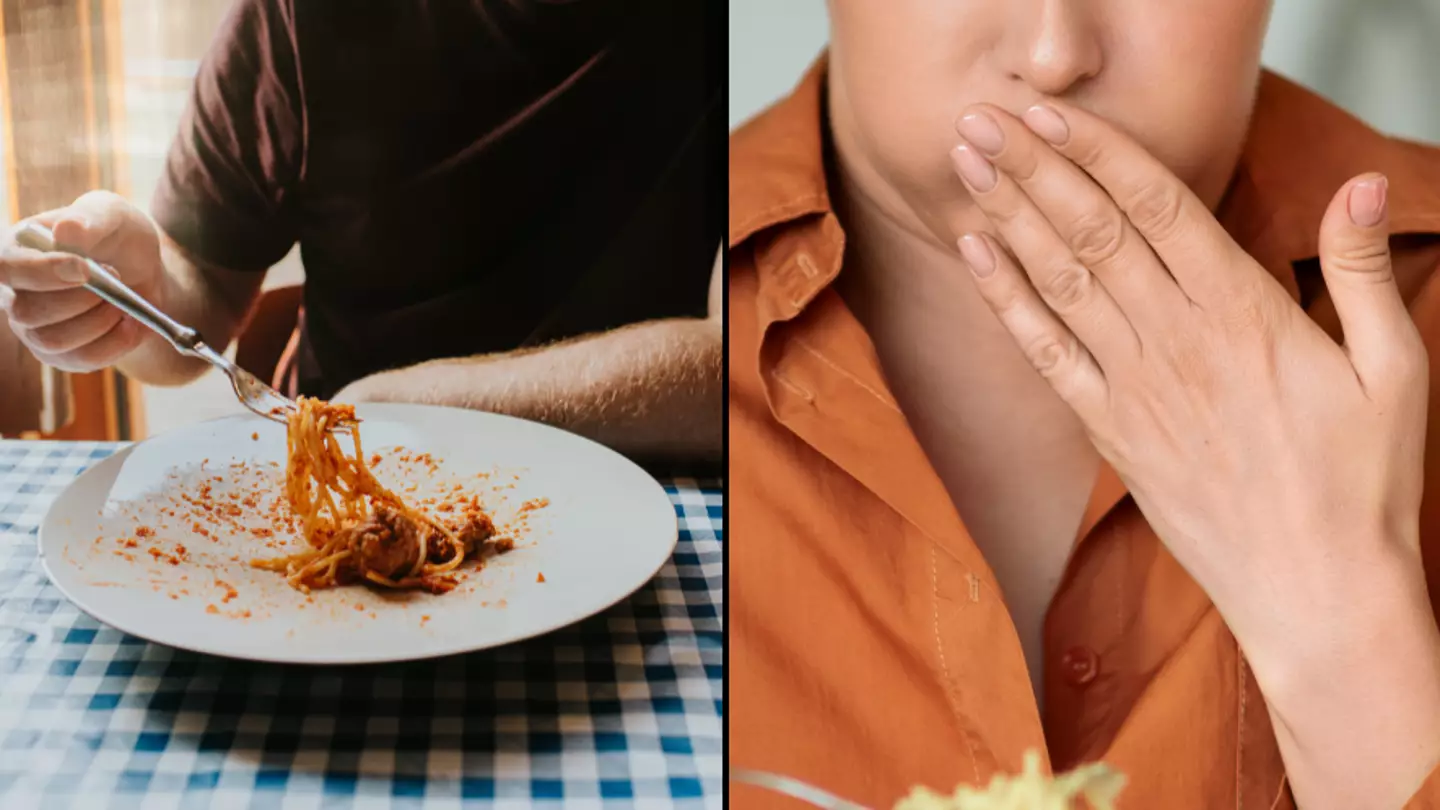
As humans, some bodily functions we have - although not very tasteful - are perfectly normal occurrences.
Passing gas (from either end) isn’t the most pleasant thing to happen after eating a meal, but if you say you don’t do it then you’re clearly lying to yourself.
I say it's not pleasant but in some cultures it's actually a sign of respect for the food.
And most of the time, it's a sign of healthy bodily function, as it aids normal digestion.
Advert
However, how do we know when farting, or in this case burping, is a cause for concern?

What causes burping?
The good news is that burping after a meal, no matter how much it gets you dirty looks from across the table, is in no way a sign of bad health and there are plenty of reasons as to why we do it.
You could have swallowed some air (yum) or wolfed your food down a bit too fast, burping is simply your body's way of pushing out excess amounts of air from your upper digestive tract.
Even excessive burping is common according to the Mayo Clinic, and isn't necessarily a cause for concern, but maybe a little switch up to your lifestyle is needed.
However, burping after a meal can become concerning if it regularly exceeds the average, which is four times by the way, or is paired with other symptoms.
What health issues can cause excessive burping?
Gastroenterologist Dr Alison Schneider, MD, told The Cleveland Clinic that regularly going well above the 'normal' amount may be a sign you need to see the doctor.
But why?
Depending on the food you've eaten for dinner that night, if it's something particularly belch-worthy, burping more than four times might just be a one off.
Dr Schneider says: “You’re more likely to swallow air and burp if you eat too quickly, drink carbonated beverages, chew gum, suck on hard candies, drink through a straw or have dentures that do not fit well."
Those pesky dentures, eh.
However, when paired with other symptoms like stomach pain, bowel issues, heartburn or bloating, then it's time to call your local GP at 8AM on the dot and pray that you can get seen some time this year.
If you're experiencing heartburn alongside your burp-athon, Gastroesophageal reflux disease (GERD) might be lurking. GERD is a 'common condition, where acid from the stomach leaks up into the oesophagus (gullet).'
Another is Gastritis, which 'can be associated with pain or discomfort in the upper abdomen, feeling full soon after eating a meal, nausea, vomiting and loss of appetite,' Dr. Schneider said.
Oh, but it doesn't end there.

Bloating, gas, abdominal pain, diarrhoea or constipation? Yep, that could be Irritable Bowel Syndrome (IBS).
IBS, as explained by the NHS, has 'no cure, but diet changes and medicines can often help control the symptoms.'
If the belching is really bad to the point where it's affecting your day-to-day life, although rare, could potentially be a symptom of stomach cancer, which can cause feelings of constant fullness, weight loss and lethargy.
“If burping or belching too much is interfering with your daily life or if pain or other symptoms accompany this symptom, this may indicate another underlying illness requiring treatment,” Dr. Schneider continued.
Even if you have no other symptoms but excessive burping continues, you may have aerophagia and supragastric belching, according to health information site Medical News Today.
It explains these are conditions in 'which a person moves air into their oesophagus, either consciously or unconsciously'.
The bottom line here is, if you're in any doubt it's always better to get it checked out - and no I didn't mean for that to rhyme.
Hopefully, chances are you just scoffed your food down a bit too quick, in which case, slow down because no one is going to take it away from you.
Topics: NHS, Health, Food And Drink